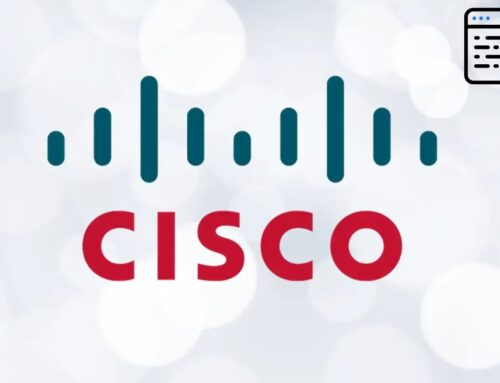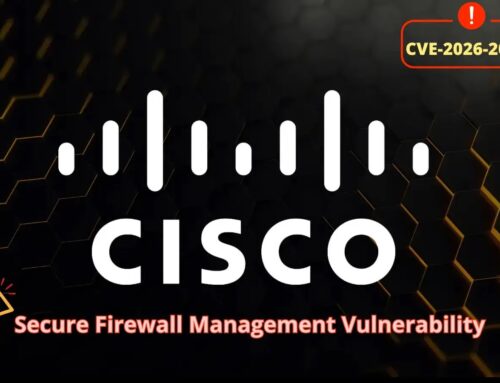
Threat Actor Mimo Targets Magento and Docker to Deploy Crypto Miners and Proxyware
In the evolving landscape of cyber threats, staying ahead of malicious actors is paramount. Recently, a significant shift in attack tactics has been observed, with the threat actor tracked as Mimo (also known as Hezb) targeting critical e-commerce platforms and cloud infrastructure. This analysis delves into Mimo’s new focus on Magento and misconfigured Docker instances, detailing the implications for organizations and outlining essential remediation strategies.
Mimo’s Evolving Modus Operandi: From Craft CMS to Magento and Docker
The threat actor Mimo, renowned for its historical exploitation of N-day vulnerabilities in various web applications, has significantly diversified its attack surface. Previously, Mimo’s activities were closely associated with compromising vulnerable Craft Content Management System (CMS) instances. This strategic pivot to Magento CMS and misconfigured Docker environments represents a concerning expansion of their capabilities and a direct threat to a wider array of organizations.
Mimo’s long-standing objective has been the deployment of cryptocurrency miners, a form of illegitimate resource utilization that can severely impact system performance, increase operational costs, and serve as a foothold for further malicious activities. The shift to Magento and Docker is indicative of Mimo’s adaptability and their pursuit of environments with high computational power and potential for widespread compromise.
Understanding the Threat: Magento and Docker as Attack Vectors
Magento, a leading e-commerce platform, processes vast amounts of sensitive customer data and financial transactions. Its compromise can lead to data breaches, financial fraud, and significant reputational damage. Mimo’s targeting of Magento likely focuses on leveraging known vulnerabilities (N-day flaws) within the platform itself or its extensions, allowing for unauthorized access and the subsequent deployment of crypto miners or proxyware.
Docker, a popular containerization platform, offers agility and scalability for application deployment. However, misconfigured Docker instances, particularly those with exposed APIs or weak security settings, present a significant vulnerability. An exposed Docker daemon can allow attackers to execute commands, deploy new containers, and effectively take control of the host system. This offers an ideal environment for Mimo to deploy resource-intensive crypto miners unnoticed or establish proxy servers for illicit activities.
While specific CVEs detailing Mimo’s current campaign are not explicitly mentioned in the source, threat actors like Mimo commonly exploit vulnerabilities such as:
- Weak or default administrator credentials in Magento.
- Unpatched Magento security vulnerabilities (e.g., CVE-2022-24086, CVE-2022-24087 for critical pre-authentication RCE in older versions, though Mimo targets N-day flaws, not necessarily 0-day).
- Misconfigured Docker APIs accessible from the internet.
- Container escape vulnerabilities that allow an attacker to break out of a compromised container and gain access to the host system.
Remediation Actions: Securing Your Magento and Docker Environments
Proactive security measures are essential to defend against sophisticated threat actors like Mimo. Organizations operating Magento and Docker environments must prioritize robust security practices.
For Magento Instances:
- Regular Patching and Updates: Immediately apply all security patches and updates released by Adobe Commerce (Magento). This is the most critical step in mitigating N-day vulnerabilities.
- Strong Authentication: Enforce complex, unique passwords for all administrator accounts and implement multi-factor authentication (MFA).
- Principle of Least Privilege: Limit user permissions to only what is necessary for their role.
- Web Application Firewall (WAF): Deploy a WAF to detect and block malicious traffic targeting your Magento instance.
- Security Audits and Penetration Testing: Regularly conduct security audits and penetration tests to identify and address vulnerabilities.
- Monitor Logs: Continuously monitor Magento logs for suspicious activities, failed login attempts, and unauthorized file modifications.
For Docker Deployments:
- Secure Docker Daemon: Never expose the Docker daemon to the internet. If remote access is required, secure it using TLS with strong authentication.
- Regularly Update Docker: Keep Docker Engine and Docker Desktop up to date to benefit from the latest security fixes.
- Image Verification: Use only trusted and verified Docker images from reputable sources. Scan all images for known vulnerabilities before deployment.
- Rootless Docker: Whenever possible, run Docker in rootless mode to minimize the impact of container escapes.
- Resource Limits: Set resource limits (CPU, memory) for containers to prevent crypto miners from consuming excessive resources.
- Network Segmentation: Isolate Docker hosts and containers within your network to limit lateral movement in case of a compromise.
- Container Security Scanners: Utilize tools to scan Docker images and running containers for vulnerabilities and misconfigurations.
Tools for Detection and Mitigation
Leveraging the right security tools is crucial for identifying and addressing threats posed by actors like Mimo.
| Tool Name | Purpose | Link |
|---|---|---|
| Trivy | Vulnerability scanner for container images, filesystems, and Git repositories. | https://aquasec.com/products/trivy/ |
| Clair | Open-source project for the static analysis of vulnerabilities in application containers. | https://github.com/projectatomic/clair |
| Docker Scout | SaaS service for Docker image vulnerability scanning and compliance. | https://www.docker.com/products/docker-scout/ |
| Sucuri Security | Website security platform offering WAF, malware removal, and CDN for Magento. | https://sucuri.net/ |
| Cloudflare WAF | Cloud-based WAF for protecting web applications like Magento from common attacks. | https://www.cloudflare.com/waf/ |
Key Takeaways for Cybersecurity Professionals
The pivot by threat actor Mimo to target Magento and Docker environments underscores the persistent and adaptable nature of cyber threats. Organizations must recognize the critical importance of maintaining up-to-date systems, enforcing strong security configurations, and implementing continuous monitoring. Vigilance in patching N-day vulnerabilities, securing cloud infrastructure, and adhering to best practices in container security are not merely recommendations; they are essential defenses against actors seeking to exploit even minor misconfigurations for significant malicious gain.





